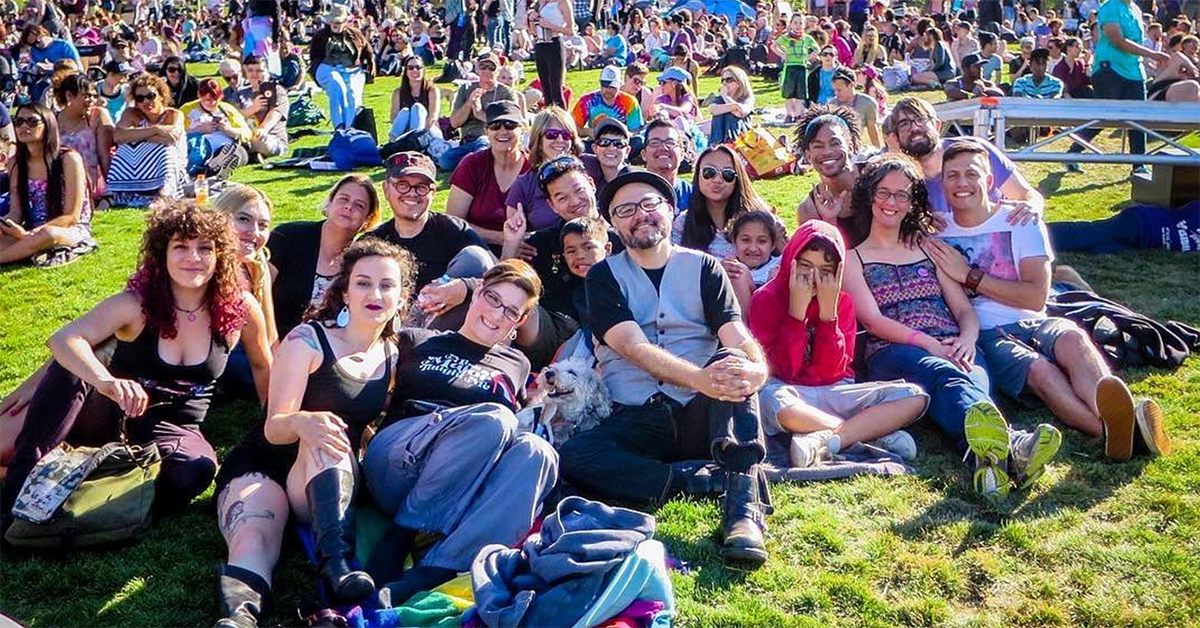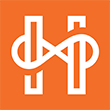How SF’s Deaf Queer Resource Center Is Filling Gaps in Accessibility, Especially During COVID-19

Drago Renteria (center) at 2018's San Francisco Trans March, in a group of Deaf trans people and ASL-signing allies.
Despite the Bay Area’s ever-increasing number of LGBTQ community spaces, a significant amount of LGBTQ residents with disabilities report that community events often do not meet their needs. Drago Renteria, who has been called “the Father of Deaf Queer Activism,” has been actively working to address the specific needs of his community for decades — work that has become all the more important since the pandemic hit.
“Deaf LGBTQ communities are often overlooked and grossly underserved within the larger LGBTQ communities, which do not often provide communication access (ASL) to their services,” explains Renteria. As he told LGBTQ Nation: “For example, there are now LGBTQ community centers all over the country. But oftentimes, their programs and support groups are not accessible to local Deaf queers.”
In an attempt to fill this void, Renteria founded the Deaf Queer Resource Center (DQRC) in 1995. It began as a website — launched three years before Google — intended to “support, empower, inform, unite, and help make the Deaf LGBTQ communities more visible at a time when most Deaf LGBTQ people were shunned and considered outcasts by both the larger Deaf and hearing communities.” The website’s cutting-edge “Bulletin Board” feature served as a chatroom of sorts, a way for Deaf LGBTQ folks across the country to make connections, discuss topics of interest, and, most importantly, build community.
DQRC has come a long way in the past 25 years, now a full-fledged 501(c)(3) nonprofit offering a wide array of services. “We provide peer support, support groups, information and referrals, educational workshops, work to increase visibility, [and] educate on accessibility,” Renteria informed LGBTQ Nation. “We also work to preserve Deaf LGBTQ history. Deaf queers are rarely ever mentioned in either Deaf or queer history books, yet we have very rich histories.”
The onset of COVID-19 has highlighted the inaccessibility of many vital communications, including public health guidance. “There is so much information out there about the virus and what we should be doing to be safe, and aside from some of the major news announcements, very little of this information is accessible in ASL,” notes Renteria. “In addition to that, the majority of virtual events created by LGBTQ organizations (to help aid with isolation and mental health) are not accessible.”
In light of these pressing needs, with the support of an emergency grant from Horizons, DQRC has stepped up as a national resource since the start of the pandemic, providing accessible information and hosting regular events to combat isolation in at-risk communities. “We are seeing an increase in the demand for our services as our Deaf LGBTQ community members struggle with different issues relating to COVID-19,” Renteria confirms. “Many are seeking support. Others have many questions relating to the virus, about possible evictions, job loss, etc. while others are struggling with isolation and mental health issues.”
To combat isolation and create inclusive, intersectional spaces, DQRC has hosted a variety of online chats such as “Black Deaf LGBTQ Healing Space,” “Deaf Trans Youth Chat & Hangout,” and “Deaf Lost to AIDS: Remember Their Names.” These online chats, Renteria explains, “create space for LGBTQ Deaf people to connect with each other, obtain peer support, and feel a sense of community.”
Especially during this challenging time, strengthening organizations like DQRC is a priority for Horizons — and must be a priority for our entire movement. It’s up to all of us to ensure that the entire LGBTQ community, including Deaf LGBTQ people, has the resources needed to advance justice for all.

 (@deafqueer)
(@deafqueer)
